Simon Ratcliffe is a sound engineer based in South Africa who specialises in immersive audio. He is also the MD of the multi-national Sound & Motion Studios which operates out of five locations across the globe. He started out in the latter ’90s as a humble audio engineer, founding Sound & Motion Studios in 2002.
Initially a music studio working across various genres – most notably jazz & alternative – in 2007 Sound & Music Studios started down a path towards audio post and these days their main business is full-service cinema and narrative series for clients like Netflix, Amazon and Disney.
A music department has been maintained throughout, and for the last fifteen years an Audient ASP8024 classic console has been at the heart of it all in the Cape Town branch.
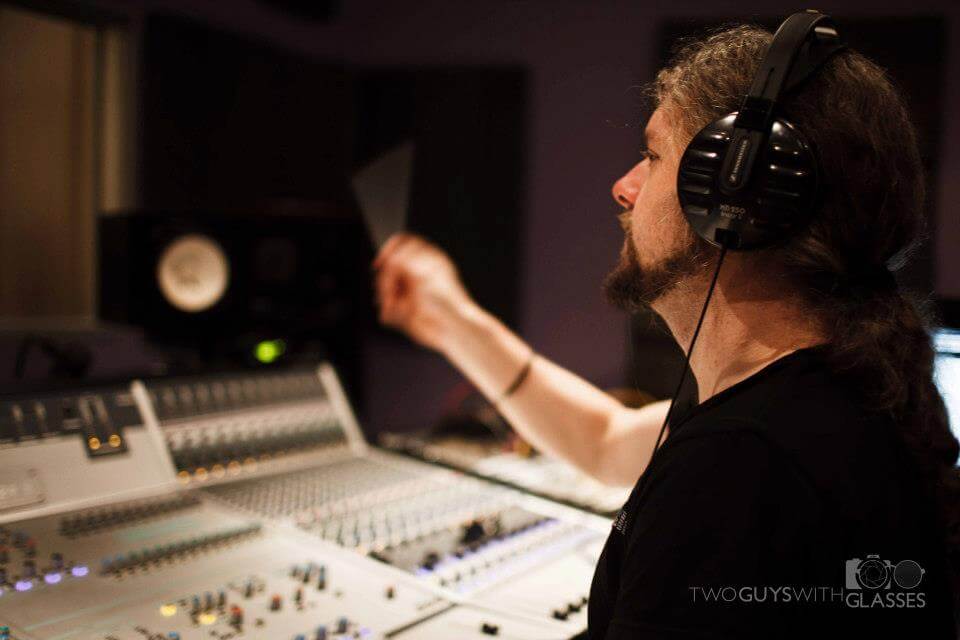
We were keen to find out more about Simon (pictured above), his business, their trusty Audient console and how he sees Dolby Atmos evolving for TV & film – and music. We started off by asking him how it all began for him.
I have a performance background (an array of bizarre and marginally useful wind instruments, and bass) and around ten years ago specialised in film score mixing and production. Most of my client roster these days are game and media composers from all over, which I love.
Tell us about Sound & Motion Studios.
We have five branches in four cities: Cape Town, Johannesburg, Amsterdam and Lagos, with our Cape Town converted church studio servicing most of the music needs for the other branches. The Church comprises our Atmos cinema, Foley stage, edit suites and of course a really great live room for tracking, which is kinda the point I suppose, with an in-room mixing area, since we opted not to have a separate music control room this time round. The rooms are linked on a Digigrid network.
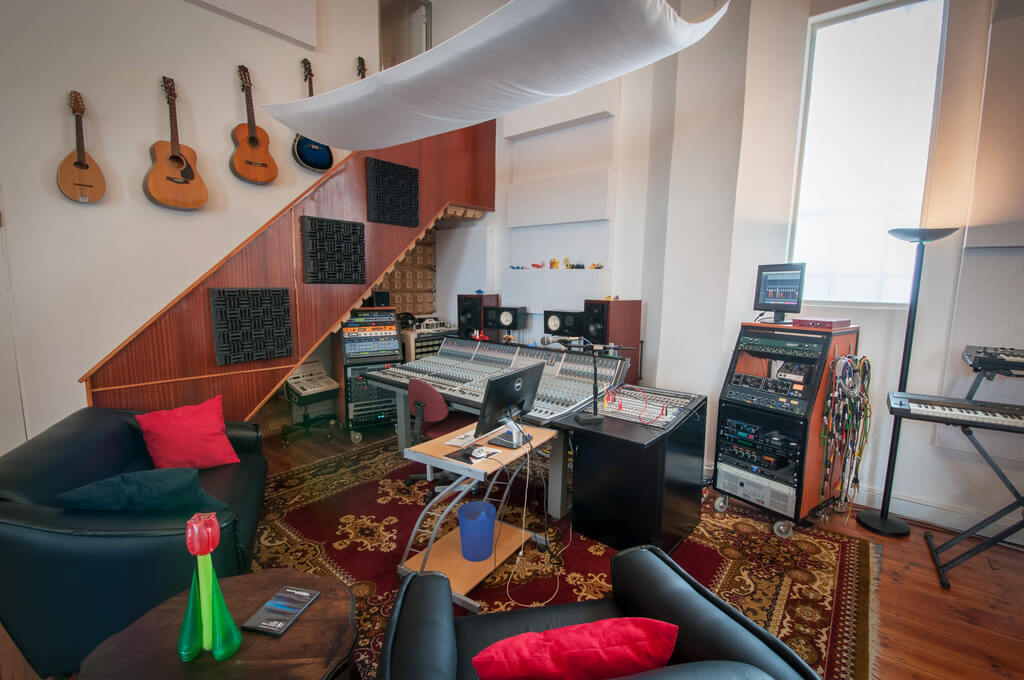
How does your Audient ASP8024 fit into that?
The Audient is the centrepiece of the music facility and 90% of the tracking happens on those pres – in fact we let go of some pres after we got the console. Even though things are in the box in film-land, I’ve maintained an analogue setup on the music side, which is great for hybrid workflows, but we do get to fire up our Otari MTR90 mk2 a few times a year.
“I’ve maintained an analogue setup” ~ Simon Ratcliffe, Sound & Motion Studios MD
We occasionally still do some very analogue records (like Medicine Boy, represented by Fuzz Club) and then it’s lots of outboard compressors, EMT 140 plate, etc. Actually I worked with a very talented local tech and engineer to convert our plate to 5.0 surround for film score mixing, which is patched through the Audient.
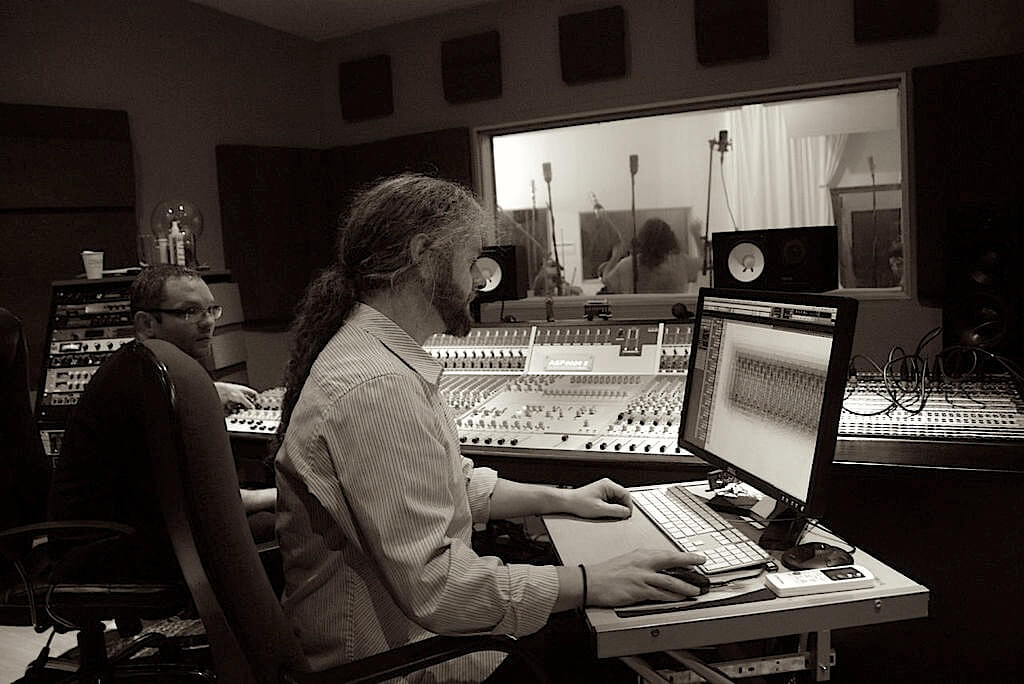
Has it been with you a long while?
Our console is a 36-channel ASP8024, so we’ve had it for about 15 years and it replaced a punchy albeit mercurial and not very flexible Soundtracs. I’d been working on SSL, Trident, a lovely Amek and one particularly recalcitrant Neve abroad, and was keen on something that was clean enough to work with the outboard and so on to impart the character I was looking for, but also easy to maintain and service.
ASP8024 classic console: “a superb balance between flexibility, quality and low maintenance costs”
I mean, there’s a lot of SSL G series consoles for sale out there but maintaining one of those in South Africa when compared with the realities of how much revenue one can generate, I thought the Audient was a superb balance between flexibility, quality and low maintenance costs.
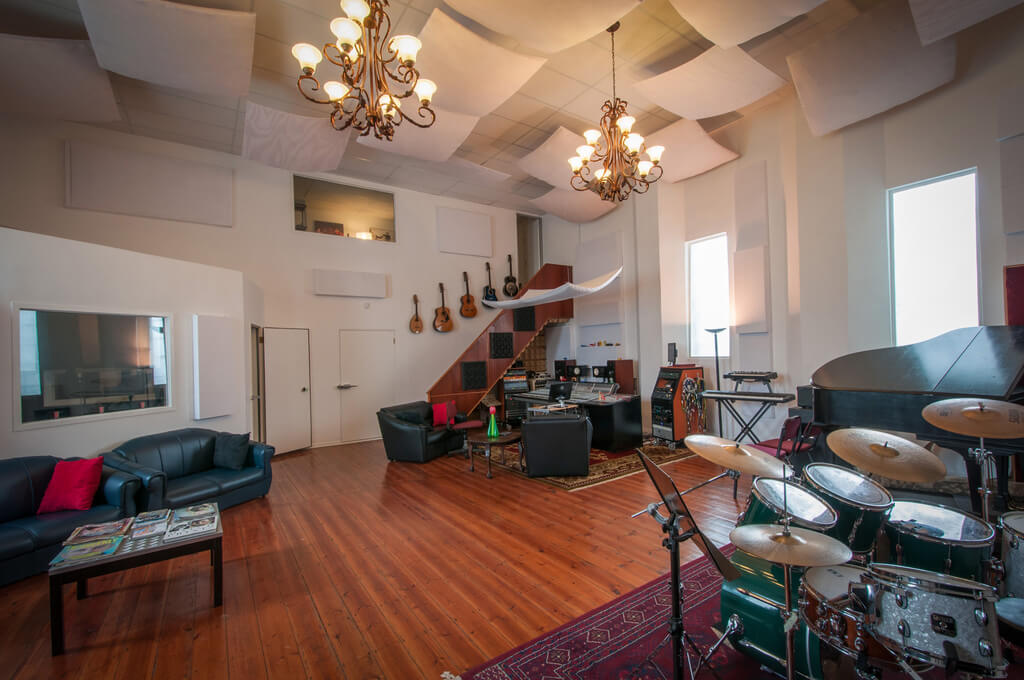
How did you hear about Audient?
I knew about DDA from before, although the first time I saw an Audient was on the cover of SOS March 2000 which was given to me by a girl I rather fancied. I actually almost bought a DDA at one point, but a really great deal on this console came up thanks to the local agent, Keith.
Do many of your team get to use the desk? How have they got on?
Yes, anyone working on music and it’s very simple to use.
ASP8024 classic console: “very intuitive”
I have a lecturing background and for a number of years, we had an arrangement with the college I taught at to use our facilities, so a lot of students got to use the console, which went really well. It’s very intuitive.
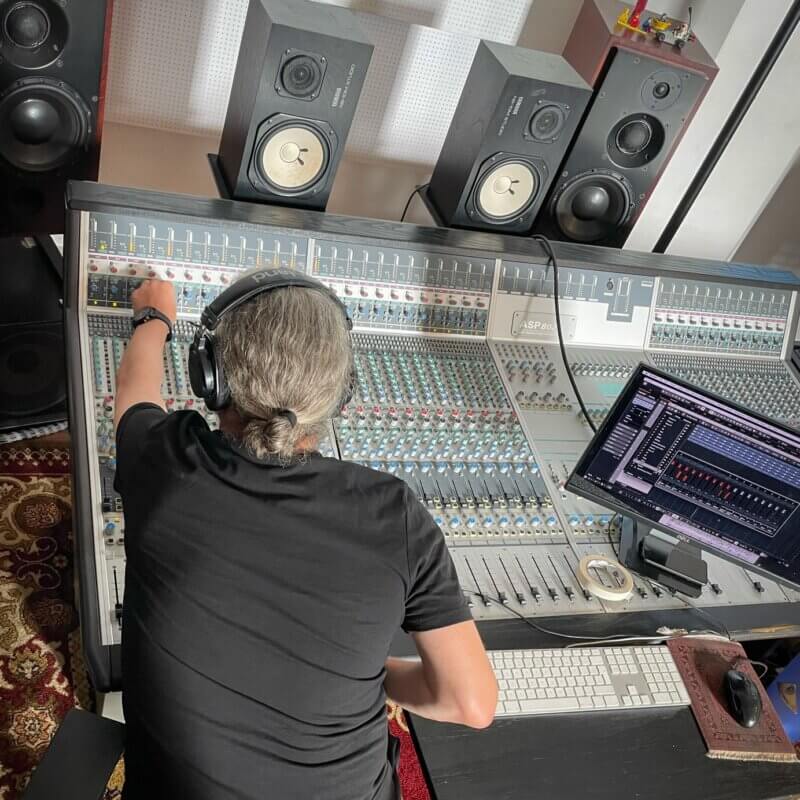
You mentioned it is easy to service. We trust it hasn’t gone wrong over those 15 years?
Mainly just the power supply (google: Load Shedding South Africa) and it’s been no issue for our tech to service at all.
What a lot of awards you have in your collection! Was the Audient desk involved in many of your nominations/wins?
Sure! It’s a mixed bag: Carl Roberts on our team engineered Asher Gamedze’s Dialectic Soul which was no4 in the New York Times 2020 top 10 jazz albums, I recorded amaFranx’s album In The Kingdom Of The Aloes which won a bronze Global Music Award and was recorded and mixed on there, Derek Gripper’s Libraries on Fire won a Songlines world music award…and the scores for both the England and Welsh Rugby mascot launches (Ruckly and Scorch) were recorded on there, to name a few.
With such high-level TV & film and gaming clients on your list, Dolby Atmos is clearly a significant part of your setup. Is this a recent upgrade or have you been on it for a while?
We were pretty early adopters with Atmos, since we worked with Dolby over in Soho back in 2015/2016 when we built our main re-recording cinema to make sure it was Atmos spec’d. Luckily we were already working in Atmos music through media music prior to the Apple panic, haha.
ASP8024 classic console: “no issue for our tech to service at all”
Do you see Dolby Atmos becoming the norm in all types of recording/mixing in future?
Maybe not all, but largely yes, I think it’s certainly going to become the norm for media music and I love how accessible and scaleable it is for the consumer. In fact, we just set up a new facility in Johannesburg and have skipped 5.1 entirely, even in the edit suites.
The TV streamers will (and some already are) mandating Dolby Atmos. Most of the big scoring projects I do now are in Atmos, whether that’s for cinema or for gaming, and while we aren’t part of the mill that takes perfectly lovely existing albums and remixes it into immersive formats (with very mixed and gimmicky results, although I gotta say the Amy Winehouse stuff was great!) we are seeing more independent music artists who are keen on using Atmos for the compositional and immersive benefit.
For film composers, it’s a no-brainer.
It would be remiss of us not to ask whether you require ORIA in your setup…
We are running Sphere to make use of the various higher end interfaces we already have in our Atmos rooms, but certainly if we were to commission a new room, it would be the logical choice.
Well, you know where we are! Thanks for the chat Simon, it’s been a pleasure to catch up.
For anyone looking to buy Audient products, find your local distributor here.
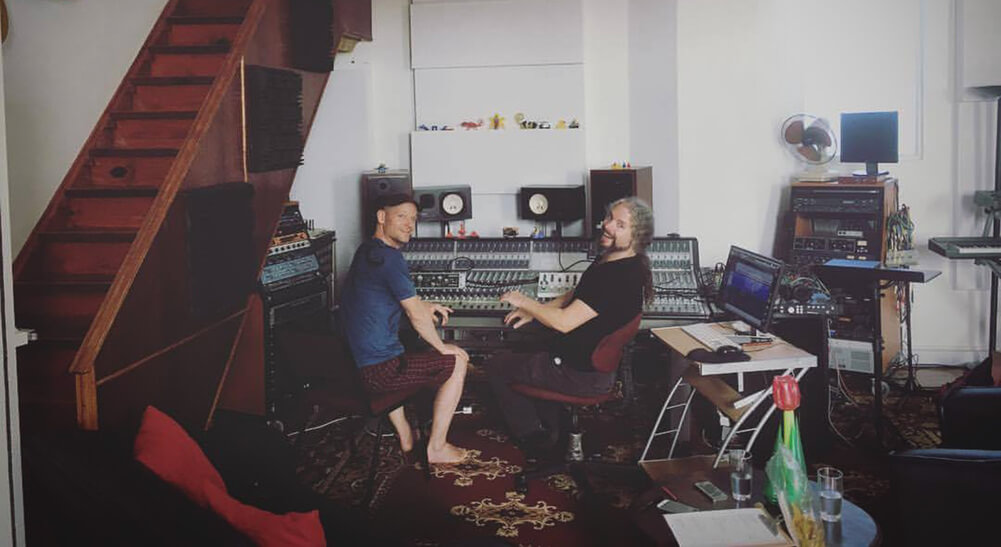
Here’s a bit more about Simon Ratcliffe:
Simon Ratcliffe is a sound engineer specialising in immersive audio, and MD of the multi-national Sound And Motion Studios which he founded in 2002 with six locations across Cape Town, Johannesburg, Amsterdam, LA and Lagos. A background in music production and film re-recording mixing led to his specialisation in game, streaming and film score mixing and supervision with clients including Arenanet, Disney, Netflix and Amazon Prime.
With a focus on Dolby Atmos, he has hosted workshops on immersive mixing and film score production at events including the AES Immersive Conference, Huddersfield University APL, ACM, Metropolis and UCL London.
Simon, who has been in residencies with score mixing giants Alan Meyerson (Hans Zimmer) and Shawn Murphy (John Williams), has won over two dozen industry accolades with his team such as Tribeca Film Festival, Emmy Primetime, SAMA, FrightNight, Global Music, Songlines, and SAFTA awards. He has a 14 year background in lecturing and development, and a masters degree in immersive music production from Hertfordshire University.